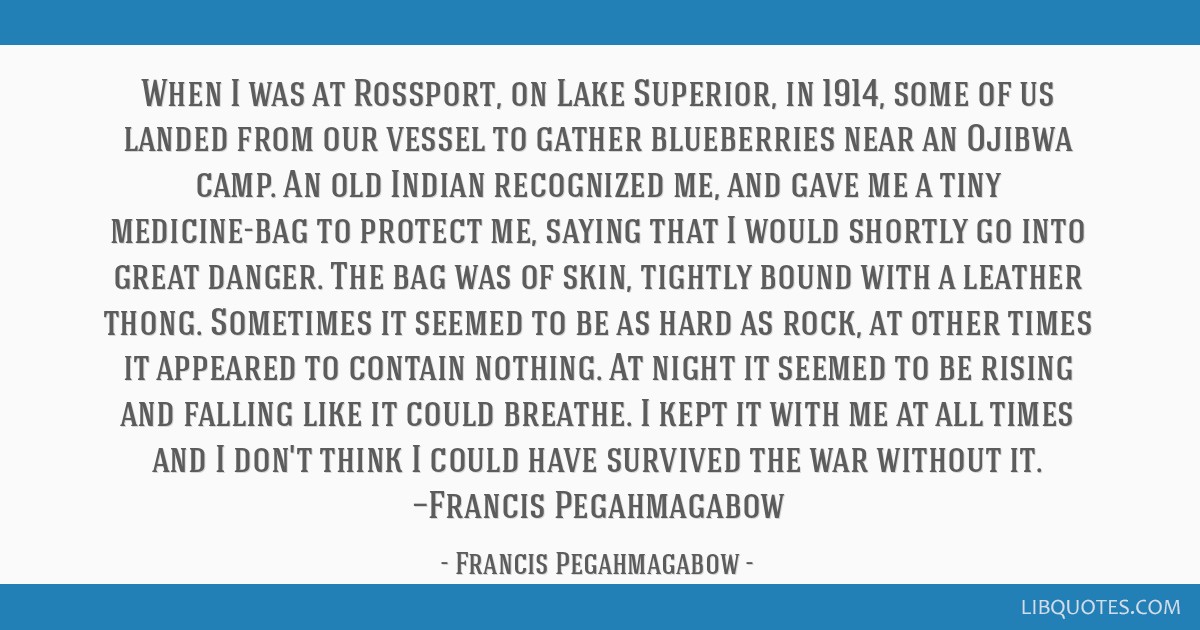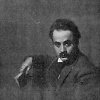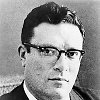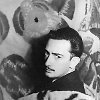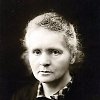When I was at Rossport, on Lake Superior, in 1914, some of us landed from our vessel to gather blueberries near an Ojibwa camp. An old Indian recognized me, and gave me a tiny medicine-bag to protect me, saying that I would shortly go into great danger. The bag was of skin, tightly bound with a leather thong. Sometimes it seemed to be as hard as rock, at other times it appeared to contain nothing. At night it seemed to be rising and falling like it could breathe. I kept it with me at all times and I don't think I could have survived the war without it. —Francis Pegahmagabow
Carroll, Al (2008). Medicine bags and dog tags: American Indian veterans from colonial times to the second Iraq War (2008 ed.). University of Nebraska Press. ISBN 9780803210851. p. 111
